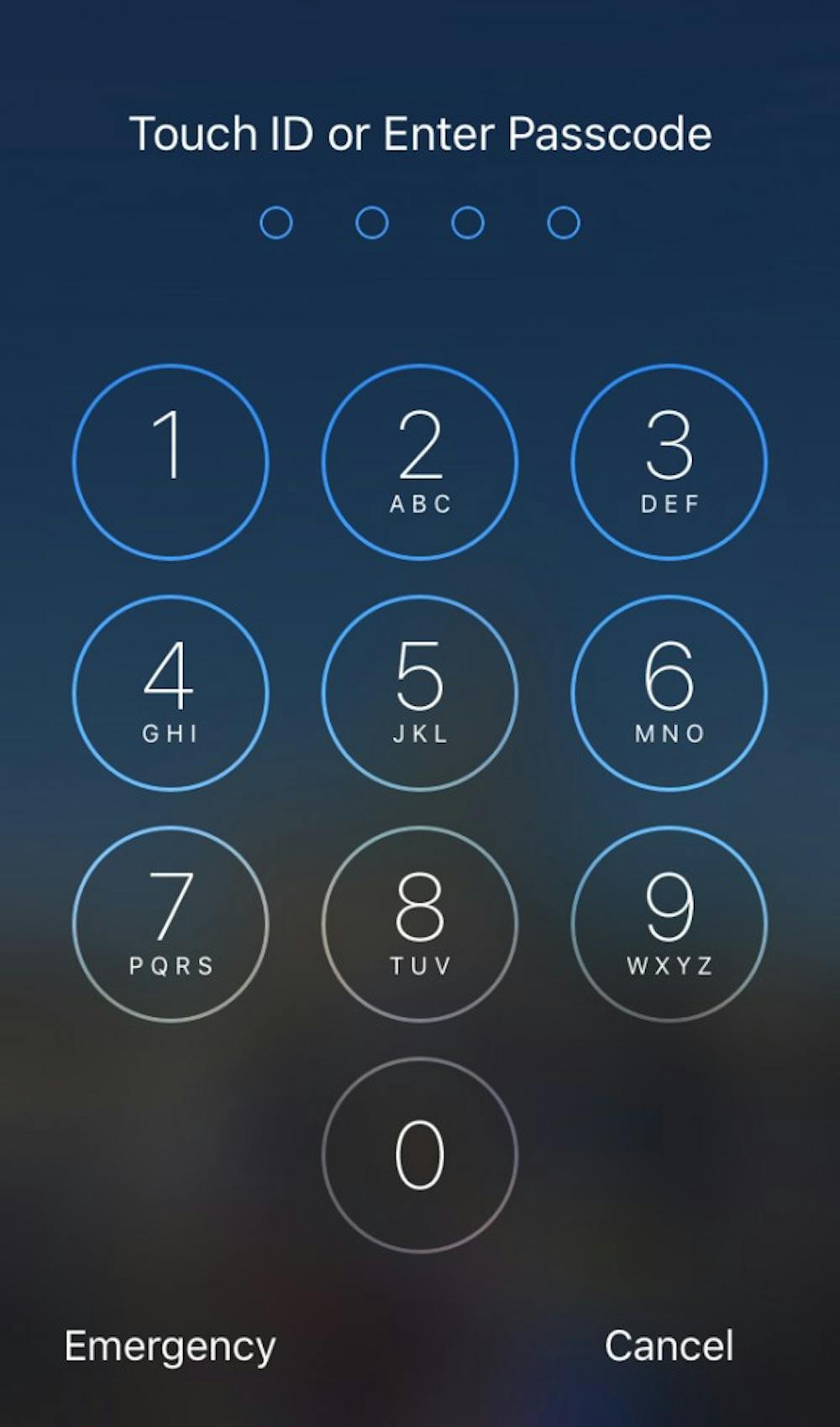Faculty and staff are now required to have a PIN number, or passcode, on their phone if they want to access their Ball State email on the device.
They are currently being made aware of this requirement, and Loren Malm, interim vice president for information technology, said it could also go into effect for students in the future. Malm recommends students have the PIN to protect their information.
“After the PIN requirement is set, it will no longer be possible to set up BSU email on the standard Mail client or the Outlook client unless a PIN is set,” Malm said. “The PIN is on your phone, it is the standard PIN you set on your phone — you probably have it set on your phone now.”
Malm said users who do not have the PIN set on their phone but have an email app connected to their Ball State email will receive a message prompting them to set a PIN number.
The change was made after Apple and Microsoft Office 365, Ball State’s email service provider, recommended the change to help protect the phone’s data. Those who already have a PIN number set up will not notice any change. If the user removes the PIN, the phone will no longer be able to access Ball State email.
“Mobile devices like iPhones and Android devices do not require the user enter their BSU email password every time they launch the email app,” Malm said. “Because of this, is it important to secure the device so that if it is lost or stolen, the email stored on the device is protected. Having a PIN helps secure the phone and prevent unauthorized access.”
Malm said faculty, staff and students sometimes receive phishing emails that try to get the user to reveal one of their passwords. Ball State offers advice on its website, and Malm said education and awareness are the best protection someone can have to avoid getting tricked.
Martin Smith-Rodden, assistant professor of journalism, already has his phone passcode protected and has his Ball State email connected to his phone. He believes he is generally less hackable since he has the passcode, and having the email on his phone is a necessity.
"If a student needs to get ahold of me, I can usually respond fairly quickly," Smith-Rodden said. "Students rely on us to keep their information secure ... I think [the passcode] is a good thing. I tend to keep my stuff fairly secure. That protects students, it protects me, it protects my family."





